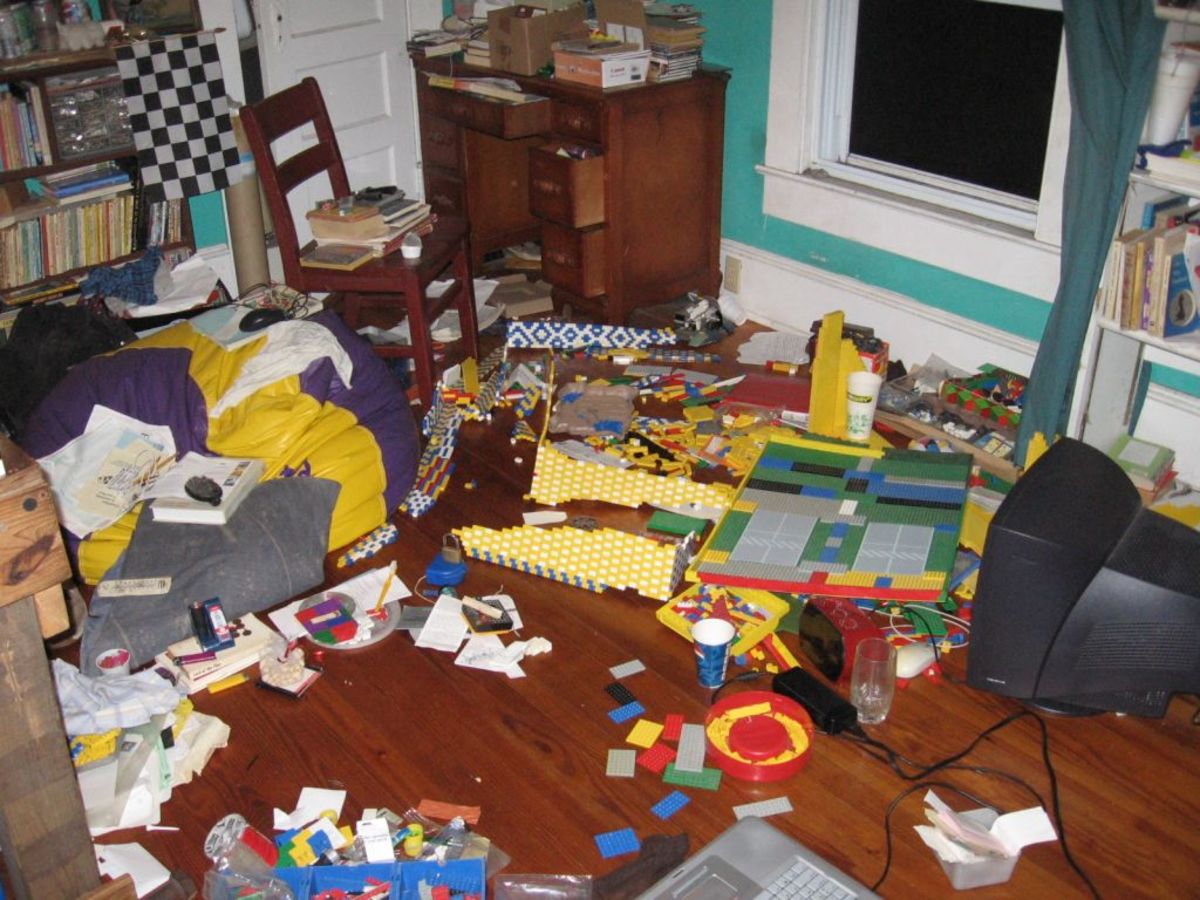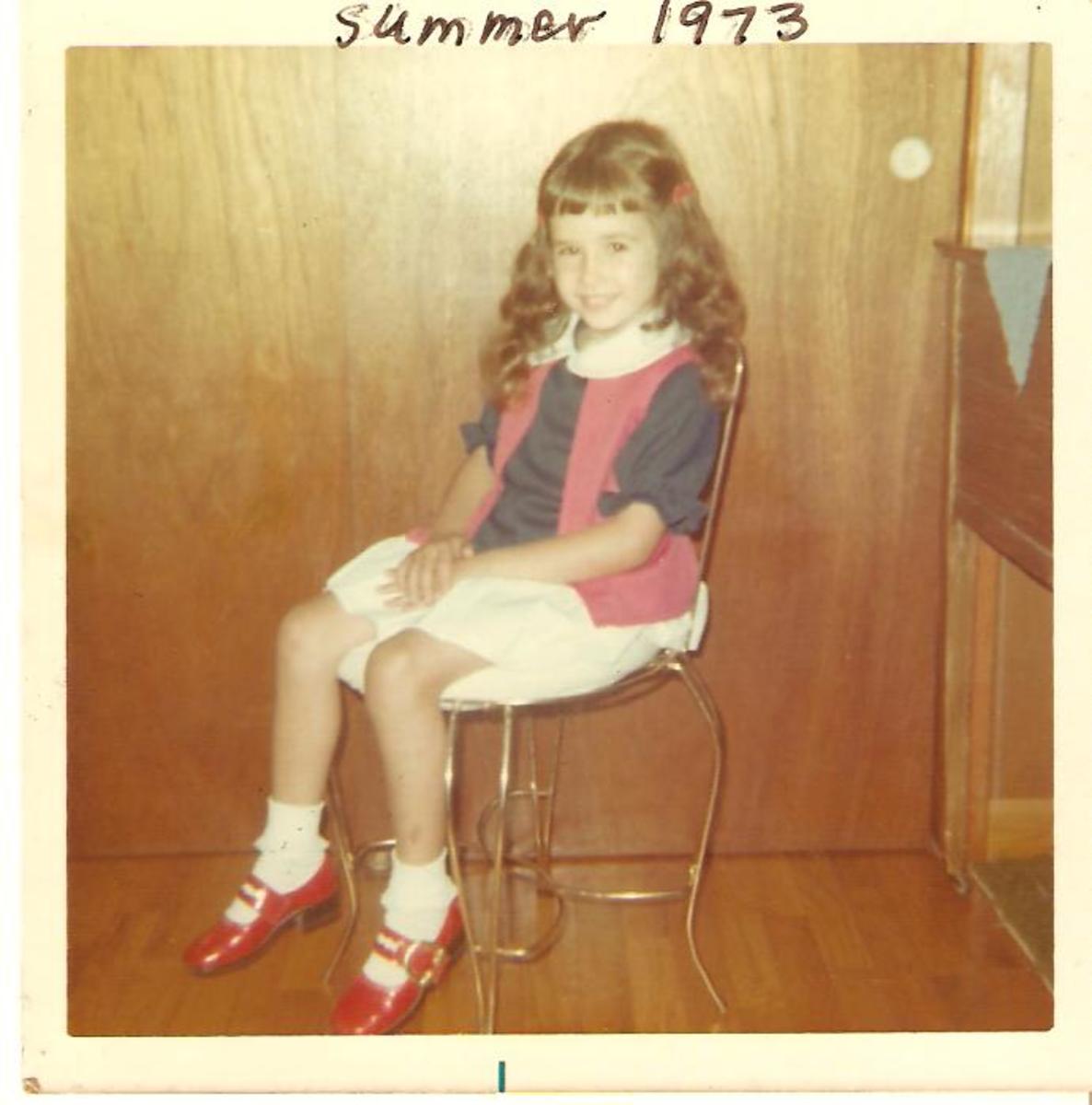We All Have A Messy Room

Shel Silverstein's writing is
Time To Clean?
Messy Room
Whosever room this is should be ashamed!
His underwear is hanging on the lamp.
His raincoat is there in the overstuffed chair,
And the chair is becoming quite mucky and damp.
His workbook is wedged in the window,
His sweater's been thrown on the floor.
His scarf and one ski are beneath the TV,
And his pants have been carelessly hung on the door.
His books are all jammed in the closet,
His vest has been left in the hall.
A lizard named Ed is asleep in his bed,
And his smelly old sock has been stuck to the wall.
Whosever room this is should be ashamed!
Donald or Robert or Willie or--
Huh? You say it's mine? Oh, dear,
I knew it looked familiar!
-Shel Silverstein-
Though this poem is obviously geared towards children, Messy Room by Shel Silverstein can be enjoyed by everyone. Its humor never ages. The poet’s words are understandable and well-chosen. The ending continues to surprise. There are many layers to this poem.
On the surface, we are presented with a messy room. Objects are scattered about. It smells in there. Cleaning has stopped being a much needed chore and has now become a health issue. Someone is going to trip and hurt themselves. The fumes from the socks are bound to damage the occupant’s lungs. It’s depressing to look at this room.
The speaker starts to point fingers. Whoever calls this room home is a bad person. They do not care about order. They are selfish and want to risk not only their own life, but the life of whoever ventures beyond the room’s threshold. Let’s find out who owns this room and make them do something about it.
Suddenly, a most embarrassing thing happens. The speaker realizes that the room belongs to them. All of the nasty things they’ve said have been directed back at themselves. Blushing, they say, “Oh dear. I know it looked familiar!” They quickly regret what they’ve been saying. Their embarrassment is meant to get them off of the hook.
I once heard that having clutter is a sign of a well-lived life. We collect objects by venturing out into the world to buy them and by becoming liked enough to receive gifts. By not throwing said items out, we show that we value them. We have hearts big enough to hold each object associated memory. We have minds sharp and imaginative enough to find worth in every scrap. In theory, an untidy room is the room of someone to be admired.
On the other hand, with so much clutter, where will we put the things that really matter? If everything is measured the same way, how will we know when there is something truly special in front of us? For each item the speaker mentions, you can be sure there is a memory attached to it, even the stinky sock. Yet, it is on the floor, not in a place where it won’t get accidentally destroyed. Could it be that the speaker has collected so many things that he doesn’t know where to put them?
If you believe in Feng Shui, you know that messy rooms often make for messy lives and vice versa. Personally, my room or any space I live in is rarely clean. I see the point in cleaning, but I also can think of ten others things to do with the time I would use to clean. I do know that when my room is clean, I think more clearly. Yet, I detest having to throw things out so cleaning for me is a stressful and irregular time. I also can’t do other forms of cleaning. My mind is full and could use some tidying up. I hold grudges for years. I remember everything especially the negative stuff. Considering Feng Shui, my spiritual balance is way off.
Being that I’ve always been analytical, I never took the poem at face value. This poem is not just about a messy room, written to inspire people to clean. To me, the poem is the sum of someone’s life. We criticize others, seeing only their faults. When we realize that we have been indirectly criticizing ourselves, we stop dead in our tracks. We don’t want to be critiqued. Knowing why we are the way we are, we seek to have our flaws forgiven or simply ignored. Yet, when we note the flaws of others, we open ourselves up to the same treatment. Our messy lives become the topic of gossip.
We often dislike in others what we dislike the most in ourselves. In a way, we hope by criticizing someone we will find a way to fix ourselves. It is easier to ask others to comment on someone else than asking them to comment on you. Never really leaving the school yard, it is easier to gossip than confront.
Through his poem, Silverstein reminds us that life is complicated. When we leave no room for failure, we are bound to fail. As with the ending of the poem so it is with life, we don’t find out how wrong we are until we’ve really put our foot in it. Silverstein urges us to stand accountable for our actions. We all have messy rooms. What right have we to criticize?
This content reflects the personal opinions of the author. It is accurate and true to the best of the author’s knowledge and should not be substituted for impartial fact or advice in legal, political, or personal matters.
© 2009 Lincy A. Walsh








